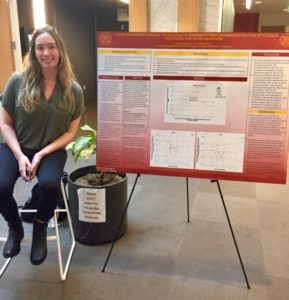Major and Classification
Psychology
Faculty Mentor
Dr. Laura Baker
Department
Psychology
Research Gateway Project
“A Gene Environment Analysis: The Influence of Personality Traits on Political Attitudes in Adolescence and Young Adulthood”
Project Abstract
There is inherent importance behind understanding the political leanings in new generations to generate interpretation for the current and future political climate. However, there has been little research on formation of political identity in adolescence and young adulthood. The present study aims to answer the question of how personality traits influence political attitudes in adolescence and young adulthood. Specifically, how do variables derived from genetic and environmental influences such as sex, education of the parents, and the social environment of ethnicity affect this relationship between personality and political identity. Data was provided by the USC twin study, conducted by Professor Laura Baker. Wave 4 data of the twins from the ages 16-18 were assessed. Correlations separated by sex, zygosity (identical or fraternal twins), and personality were created to assess the general strength and direction of personality traits (Temperament and Character Inventory) with conservatism scores (Wilson Patterson Social and Political Attitudes Questionnaire). In addition, a multivariate linear regression model was used to predict conservative attitudes from personality traits, sex, ethnicity, Socio Economic Status, and parents education in 16-18 year olds. Results for White participants found that Novelty Seeking in personality was a significant predictor of conservatism ( = .042, F(1,363)=16.009, p<.05). For R2 every increase in conservatism, Novelty Seeking decreased by .505 in White participants( β = -.505, p<.05). Measures of Mothers SES were also found as a significant predictor of conservatism in White adolescents ( R2 = .023, F(1,283)=6.798, p<.05). In which, for every increase in conservatism, Mothers SES decreases by .008 in White participants ( β =-.007, p<.05). Future studies should explore this relationship specifically in minority ethnicities to discover other significant predictors of forming political attitudes in adolescence.
